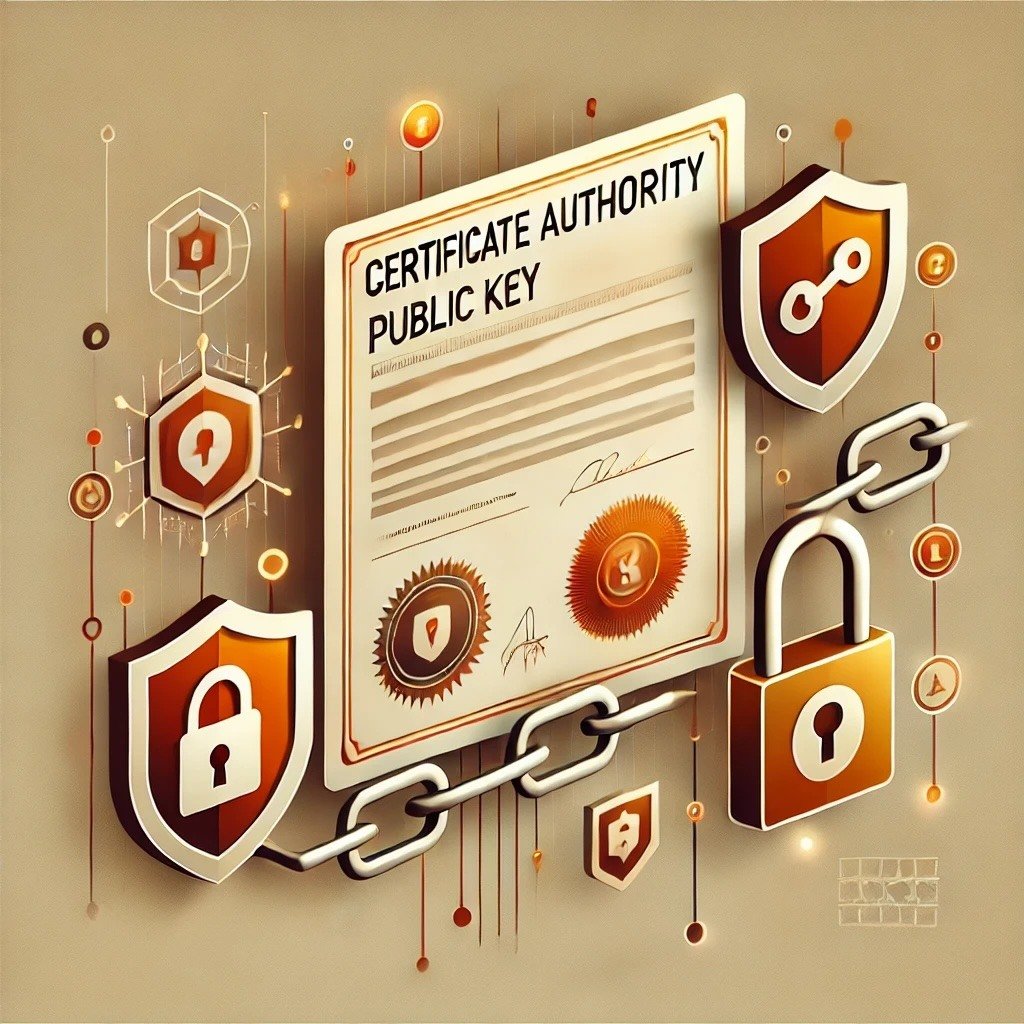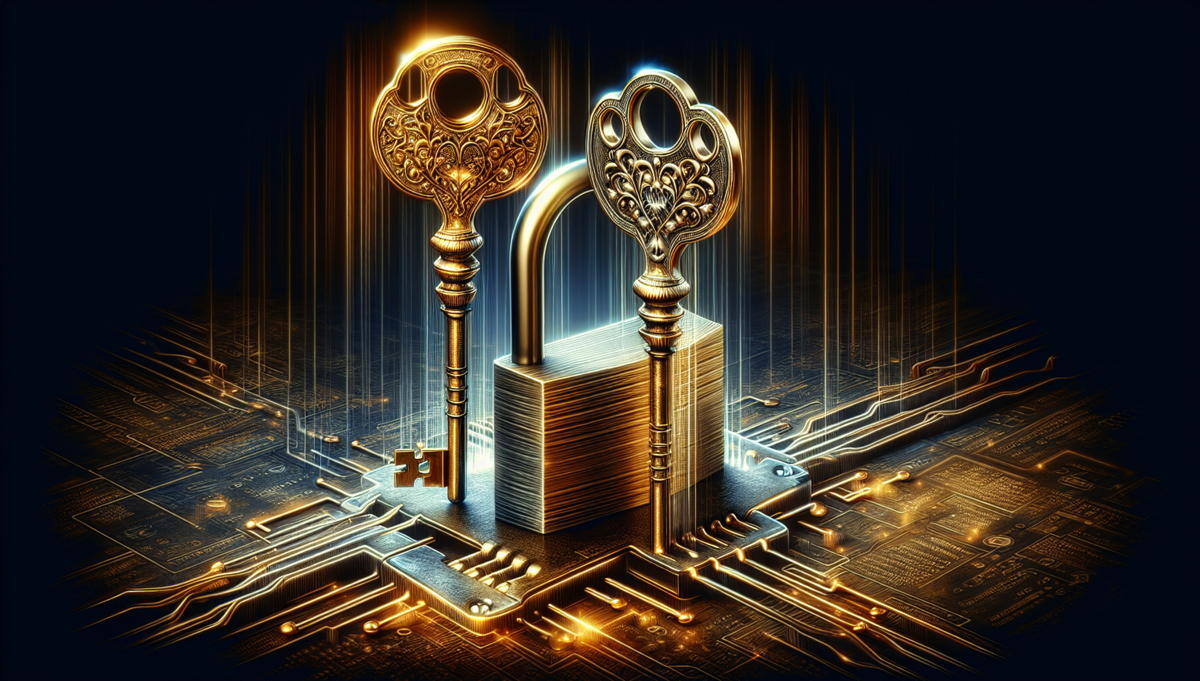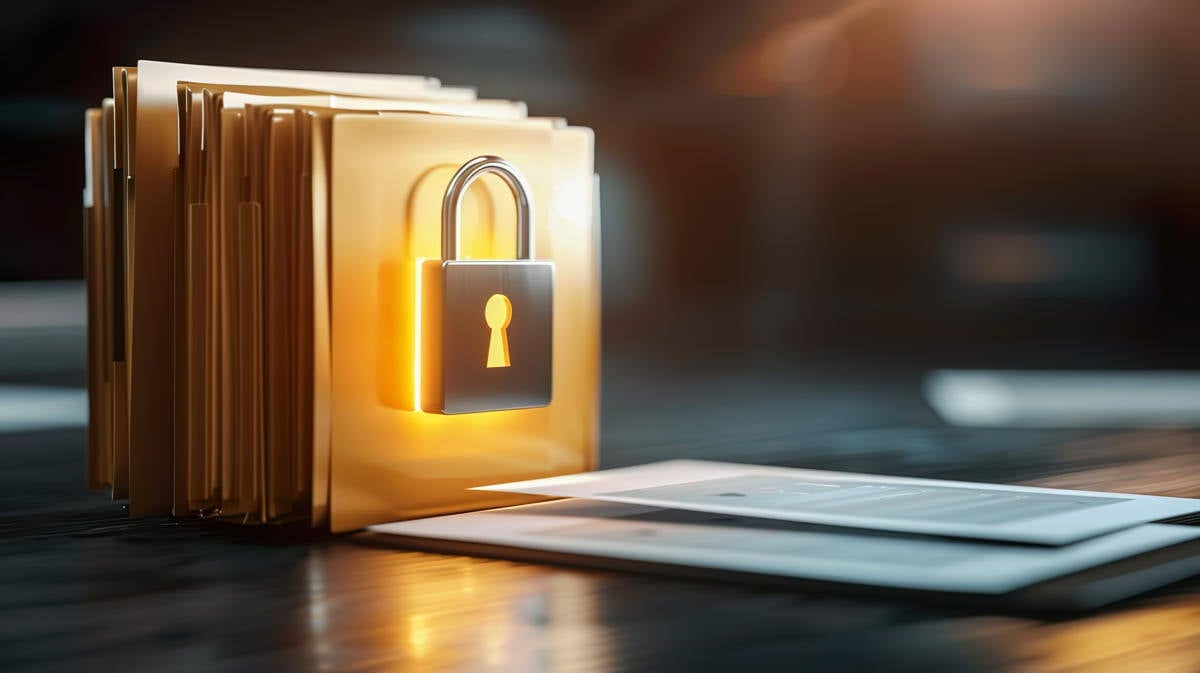In this post, we’ll break down what Certificate Authorities do, how they fit into the world of public and private keys, and how they help keep the internet secure.
What is a Public-Private Key Pair?
Before we dive into Certificate Authorities, let’s quickly recap the concept of public and private keys. These keys are like a pair of digital tools that work together to secure information.
- The private key is a secret key that you keep safe.
- The public key is something you can share with anyone.
When you generate a keypair, your public key is used by others to send you encrypted messages or to verify digital signatures that only you (the holder of the private key) could have created.
But how do people know that the public key they’re using really belongs to you and not someone pretending to be you? This is where Certificate Authorities come in.
What is a Certificate Authority (CA)?
A Certificate Authority (CA) is a trusted organization that helps verify the identity of individuals, websites, or organizations. They act as a third-party verifier in the digital world, helping to confirm that a public key belongs to the person or organization it claims to.
Think of the CA like a notary in the physical world. When you need to verify your identity for important documents, a notary will confirm that you are who you say you are. Similarly, a CA ensures that the public key being used really belongs to the correct person or website.
How Does a Certificate Authority Work?
Here’s how the process typically works when you want to get a digital certificate from a CA:
1. Generate Your Keypair
First, you (or your organization) generate a keypair—a public key and a private key. This can be done using software tools that are widely available. Once your keypair is generated, you’ll keep your private key safe and share your public key with the CA.
2. Submit Your Public Key to the CA
Next, you send your public key to the Certificate Authority along with some information to prove your identity. If you’re a website owner, this might include proof of domain ownership. If you’re an individual, you may need to provide personal identification details.
3. CA Verifies Your Identity
The CA then goes through a verification process to confirm that the public key really belongs to you. This step ensures that no one else can pretend to be you and use your public key fraudulently.
4. CA Issues a Digital Certificate
Once the CA has verified your identity, they create a digital certificate. This certificate includes:
- Your public key.
- Your identity (such as your name or website).
- The CA’s own digital signature to prove that they verified your information.
This digital certificate is then returned to you, and you can share it publicly. It’s a digital “stamp of approval” from the CA that tells others, “This public key is legitimate and belongs to the person or organization listed.”
What is a Digital Certificate?
A digital certificate is like an electronic ID card. It proves that your public key really belongs to you. When someone else wants to communicate with you securely, they can check your digital certificate to verify your identity and trust that the public key is authentic.
For example, when you visit a secure website (like an online banking site), your browser checks the website’s digital certificate to make sure it’s legitimate. If the certificate is valid and signed by a trusted CA, the browser shows the padlock icon, indicating the connection is secure.
Trusting Certificate Authorities
Why do we trust Certificate Authorities? Most browsers and operating systems come with a pre-installed list of trusted CAs. These are the organizations that have proven to be reliable and trustworthy over time. When a CA signs a digital certificate, your browser or device can automatically trust it because the CA is on this trusted list.
If a CA ever issues a fraudulent certificate (for example, if they incorrectly verify someone’s identity), their status as a trusted authority can be revoked, meaning browsers will no longer trust the certificates they issue.
Why Is This Important?
In a world where we share sensitive information online—from passwords to payment details—knowing who you’re communicating with is crucial. Without Certificate Authorities, it would be much harder to trust that the public key you’re using belongs to the right person or organization.
Digital certificates and the Public-Private Key Infrastructure (PKI) allow us to:
- Secure communication: By encrypting data using public and private keys, we can ensure that sensitive information stays private.
- Verify identities: Digital certificates help us confirm that a website or person is who they claim to be.
Conclusion
Certificate Authorities are a vital part of the digital security ecosystem. By verifying the ownership of public keys and issuing digital certificates, they help create a foundation of trust on the internet. The next time you see that little padlock in your browser, you’ll know that a CA has played an important role in keeping your connection secure.
In future posts, we’ll explore more about how these digital certificates work and how they play a role in securing websites and online communication.




